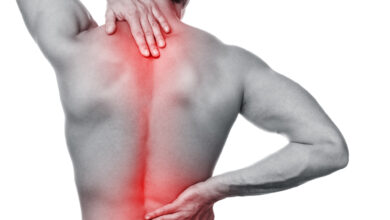Can You Eat After a Dental Implant Surgery?

Dental implant procedures increased by over 6% between 2019 and 2020. Between 2020 and 2026, the number of implants might rise by 23%! More people are choosing dental implant surgery to improve their smiles.
Even so, few people are aware of what the dental implant recovery process entails. For example, what can you eat after dental implant surgery?
Read on to find out! Reviewing this guide will help you stock your fridge and avoid problems after your procedure.
About the Procedure
Your entire dental implant procedure will require more than one appointment.
During the initial assessment, your dentist will determine if your jawbone is healthy enough to hold the implant. Your dentist will also confirm that you don’t have gingivitis (gum disease).
Dental implants are designed to replace one tooth or more. It’s an outpatient procedure usually completed under general anesthesia, IV sedation, or local anesthesia.
During your next appointment, your dentist will place your implant. If you require an endosteal implant, the surgeon will:
- Cut your gums to expose your jawbone
- Drill holes into the bone
- Insert the implant post
Your dentist might place a removable denture over the hole for aesthetic purposes until they can attach a permanent crown atop the implant.
For the next two to six months, bone will grow around the screw. This process, osseointegration, ensures your jawbone will hold the implant in place.
Eating the wrong foods during the osseointegration process can disrupt the healing process. Wondering what to eat after dental implant surgery? Start with soft foods.
During this time, your jaw and teeth are delicate. You’ll want to avoid overworking your jaw. Otherwise, you could damage the implant area, delaying your healing time.
You can learn more about the dental implants service linked here.
24-48 Hours Later
Immediately following your dental implant procedure, you won’t be able to eat anything. Gauze sponges will need to remain in your mouth to stop the bleeding.
Leave the gauze in for as long as your dentist recommends.
Once you’re allowed to remove the gauze, you can eat again. Try to eat a cool, liquid-based diet the first 24 to 48 hours. A liquid-based diet will help you take care of your mouth to ensure optimal recovery.
For example, you can eat:
- Smoothies and protein shakes
- Cool, smooth soups
- Fresh juice
- Applesauce
- Cold broths
- Meal replacement beverages
- Popsicles
- Mashed potatoes, bananas, and pumpkins
- Scrambled eggs or salmon
Make sure to remain hydrated during this time, too.
Smoothies are filling, nutritious, and easy to consume. They also contain vitamins that can restore your energy levels during this time. Your body needs vitamins and minerals to help you heal after the procedure.
You can also consume pudding, Jell-O, milkshakes, and milk. Make sure to consult your dentist about your diet during your recovery period.
Foods to Avoid
When consuming liquids, avoid using straws. Avoid drinking out of a water bottle that requires suction, too. Otherwise, you might disrupt the healing process by putting pressure on your mouth or implant.
You should also avoid:
- Hot or spicy foods
- Popcorn, nuts, and seeds
- Sticky or chewy sweets
- Dairy products
- Hard fruits and vegetables
Hot or spicy foods can irritate the surgical site. They could increase your risk of infection as well.
Popcorn and other crunchy stacks might get lodged into the surgical site. Inflammation and discomfort might occur as a result.
Sticky and chewy sweets like caramel and taffy can adhere to your teeth. They might dislodge your temporary restoration, too. If you’re in the mood for something sweet, try a milkshake.
Dairy products like yogurt and milk can inflame your oral tissues, damaging your teeth and gums. They might also cause vomiting or nausea.
Avoid any hot foods or beverages, too. Instead, stick to cool liquids during this period.
Don’t drink or smoke, either. Alcohol can slow the healing process. It might contribute to increased swelling or interact with the post-op medications you’re taking.
The Weeks After Surgery
It’s normal if you’re feeling anxious to start enjoying your favorite foods following your dental implant procedure. However, you should follow your dentist’s timeline. They’ll let you know when you can begin consuming other foods.
After the first few weeks following a soft-food diet, you can start introducing soft meats to your diet. For example, chicken or fish. Avoid anything that requires too much chewing (like beef).
Boil or steam vegetables to ensure they’re easy to chew. Remember to avoid anything too crunchy.
For breakfast, you can start adding soft cereal or cooked oats to your diet. Make sure your oatmeal isn’t too hot to avoid discomfort.
After Final Placement
Healing can take up to six months following your dental implant surgery. During this time, you can slowly add harder foods back into your diet. Prioritize protein to aid the dental implant recovery process.
To add more protein to your diet, consider:
- Broiled fish
- Scrambled eggs
- Ice cream
You can also add soft, seedless fruits, waffles and pancakes, soft breads and muffins, or thin pasta to your diet.
In the weeks after the final placement, you can return to your normal diet. Make sure to consult your dentist first.
Foods to Avoid
If you’re still healing, avoid consuming seeds and nuts. These foods could cause pain and discomfort.
Avoid hard, crunchy, tough, or chewy foods, too. For example, pizza crust might impede your recovery time.
Prioritize Oral Hygiene
During your implant recovery period, prioritize your oral hygiene above all else.
Brush and floss daily. Brushing your teeth will minimize bacteria, plaque, and tartar formation. Flossing will ensure you remove food particles and plaque hiding between your teeth.
Your dentist might recommend a water flosser or oral irrigator during this time. A water flosser will ensure you reach hard-to-get spaces without causing discomfort.
To extend the lifespan of your dental implant, keep up with your oral hygiene!
Eating After Dental Implant Surgery
Eating after dental implant surgery doesn’t have to feel stressful. Instead, follow these tips to improve your recovery time. With these tips, you can heal without disrupting the surgery site.
Searching for more tips? You’re on the right blog.
Check out our latest articles today for more helpful advice!





